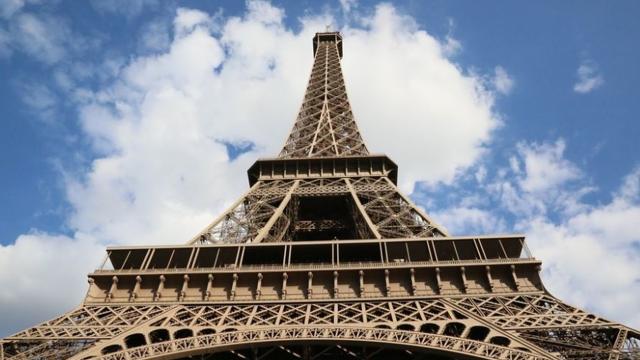The National Council of Resistance of Iran (NCRI), the parent coalition of the opposition People’s Mujahedeen Organization of Iran (PMOI), planned the Paris rally that is normally preceded by round-table events.
Mrs Maryam Rajavi, the President-elect of the National Council of Resistance of Iran spoke to the gathering: "Last week, the Tehran bazaar rose up and ignited the uprising in Tehran and other cities Iran again rose up, with all its children, with all its nationalities and ethnicities. For the past six months, the Iranian people have waged an uprising and a protest movement despite maximum suppression.
The signs of change in Iran and the regime’s overthrow have appeared. The prospects for the victory of Iran’s democratic revolution, devoid of the mullahs and the Shah are looming."
The protests in Iran did not subside after nationwide demonstrations in December last year; rather, it has now reached the capital where Bazaar merchants and other classes joined forces last week in Tehran and other large cities to protest the grave economic situation. These protests, the regime’s internal crises, the ongoing power struggle inside the regime and paralysing US sanctions are all hammering the Iranian regime’s already battered ship. This has Iranian authorities contemplating how to resolve these predicaments to save the regime.
Regime at sensitive crossroads
“We will be seeing a great sedition in the country by the end of this (Persian) year and the start of the next year”, the former Minister of Intelligence said on June 21.
“The seditions have been planned very meticulously. The enemy has targeted the central axis of the system which is the Governance of the Jurist (Vilayat-e Faqih)”, Heidar Moslehi added.
A senior Iranian cleric said on June 22 that the regime was at very sensitive crossroads.
“We have been met with widespread attacks from the enemies so that… they strike us and destroy the system”, Movahedi Kermani added.
Arman state-run Daily also pointed to the unstable condition of the regime in an article on June 23.
“Difficult and unknown days are quickly approaching”, it said.
Members of the Majlis, Iran’s parliament, are also in a state of panic warning about troubles ahead.
“The enemies of the system have planned the overthrow of the system”, Feriydoun Hassanvand, who represents the town of Andimeshk in the parliament said citing paralysing sanctions against Iran.
“Sanctions are the enemy’s plan to create pressure and ultimately public protests. The enemy is trying to tighten the siege on the system”, he added.
On June 23, another MP representing the Varamin area said that all the secondary sanctions had returned and that the financial and monetary systems of the regime were completely affected by sanctions.
“The global financial and monetary systems will not work with us”, Hossein Taghva Hosseini added.
This is while according to Iran’s General Director of Social Insurance, 77% of those who receive aid from the Social Security Organisation and 35% of pensioners live below the poverty line.
Officials resort to Rouhani's resignation to save the regime
As a last resort, a number of officials are turning to Rouhani’s resignation as a way of saving their ship from drowning. Though it’s clear from the tone of adherents to this option that they aren’t banking on the regime’s survival with this plan. But there’s one thing all regime officials agree with. If the status quo continues, the regime will not make it.
Regardless of whether the pressures on Rouhani will ultimately force him to resign, the regime’s interior turmoil will not subside and will escalate.
Therefore, it can be said with confidence that no new “idea” or tactic can save the regime’s sinking ship.
The Vilayat-e Faqih is taking its last breath as a result of the end of the policy of appeasement and the nationwide uprising and any efforts by the regime, will only bring the Iranian society closer to an explosion.




